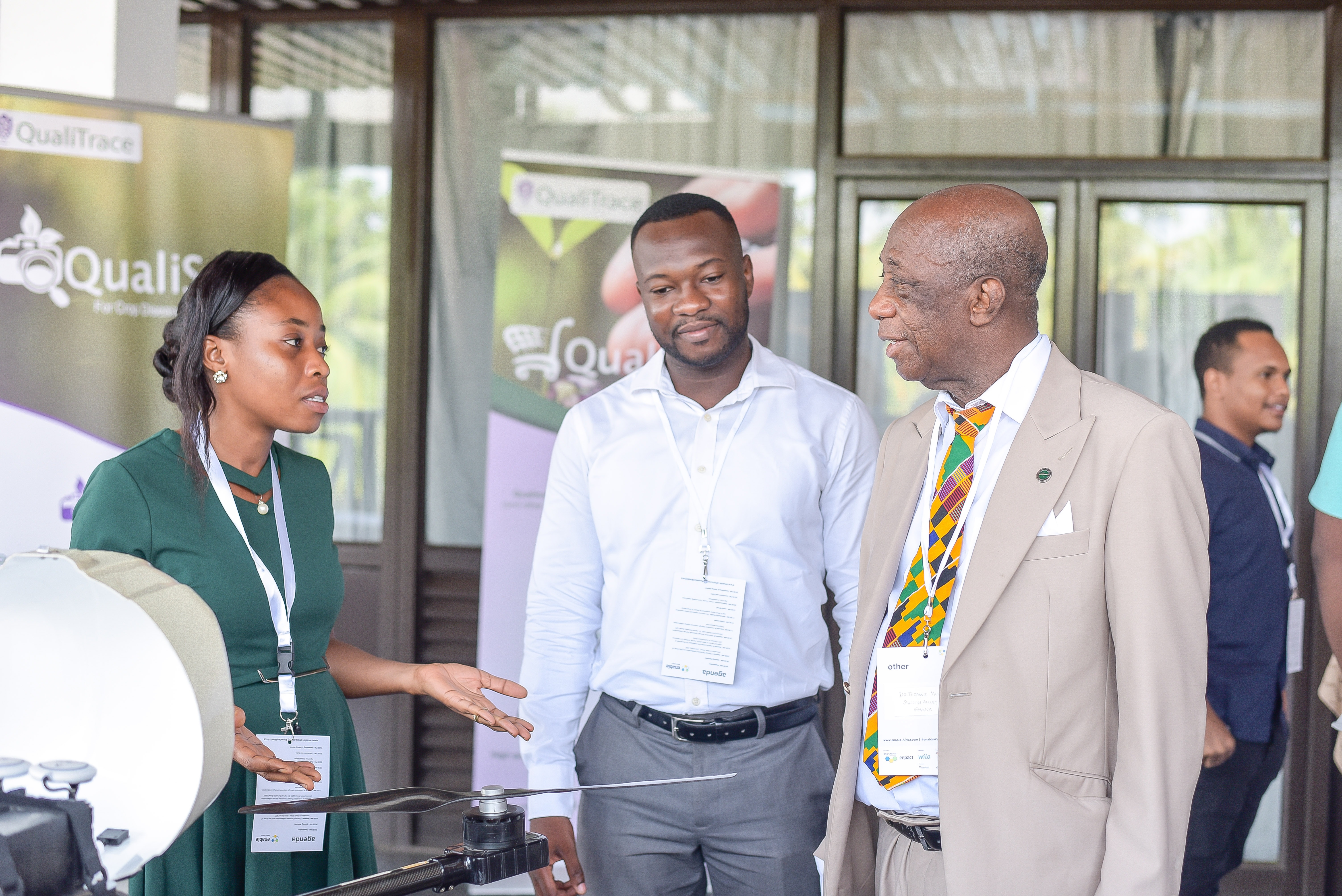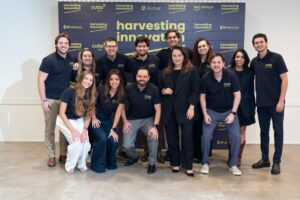The Ghana agriculture industry is fighting a battle.
Fraud in the agriculture inputs industry is rife with fake fertilizers, pesticides and other inputs meaning farmers are facing poor harvests, horrible soil conditions, poor plant health and eventually the perpetuation of the cycle of poverty.
QualiTrace, a young Ghanaian startup providing a track & trace technology is trying to fight this battle that stems from the lack of proper government regulation on imports of agrochemicals, catalyzed by the local distribution of poorly mixed solutions by cartels & farmers themselves.
Founded after co-founder and CMO Padiki Bukari participated in and won the Kosmos Innovation Challenge in 2017, Qualitrace is already serving a farmer base of about 7,400 farmers. Still small next to a population o over 10 million farmers in Ghana, the potential is massive since its services are comprehensive along the whole agriculture input value chain, including:
- Marketplace for authentic farm products
- Verification system for farm products
- Pest & disease detection software & recommendation service
- Farmer education on use & application of farm inputs
Enable West Africa, the new joint venture launched to accelerate agrifood and water tech innovations in this emerging market, met the team and caught up with the CEO Kenneth Nelson to understand more about this up-and-coming startup from Ghana.
So what is your track and trace solution and how does it work?
We have developed two mobile based solutions: QualiCheck (a USSD based anti-counterfeiting solution for farmers to verify products) & QualiScan (an intelligent pest & disease identification technology). USSD (Unstructured Supplementary Service Data) is the technology that allows SMS communication between a mobile phone and an application program in the network. The QualiCheck is a service that allows farmers to verify the genuineness of a chemical by inputting a code that is usually on the label of the agroinput. The QualiScan, on the other hand, is a scanning technology that aworks only on smartphones, assisting the farmer in early detection of crop infestation and recommending the appropriate care.
We get our solution to farmers through farmer-based organizations (FBOs). At the moment, we are working with only five of them, reaching about 7,400 farmers, where the average farmer operates about 5-10 acres of farmland.
So why would a farmer want to use this solution? What’s the incentive?
First and foremost, our farmers are smallholder farmers who do not have much disposable income. Every purchase they make from their hard earned cash counts; it’s an investment that will feed & clothe their families. By using our services they gain assurance that they have purchased the right product. Farmers buy what they see. If they see that their harvest is of high quality, they will be returning customers.
Secondly, by garnering points on the system, the farmer is able to convert their loyalty points to a product of their choice at a later date. For the agroinput manufacturer this is a dream come true- a way to penetrate deeper, into hard to reach African markets with a simple-to-use technology for the average farmer.
You’re doing a great job educating farmers and retailers on anti-counterfeiting solutions as well. You could definitely reach more and create more impact. What is hindering your explosive growth?
We are on one hand limited by logistical challenges and on the other hand by the long adoption cycles taken by farmers. As far as logistical challenges are concerned, the slowly-but-surely-developing telecommunication infrastructure prevents us from going into hard to reach areas. How would a farmer authenticate the product without network coverage? And even then, how would they order it in the first place? Closely linked to this are the logistical issues in delivering the authenticated products in hard to reach areas.
We also are battling long adoption cycles by farmers. Farmers tend to believe other farmers who may sometimes be using the wrong chemicals themselves. Without the support of government personnel to do proper regulation on the ground, we’re fighting an endless battle. In fact, adoption of such technologies takes place more efficiently if the government worked directly with us. We are working to get the attention of donor agencies and other intergovernmental advisory services to recommend us to our own government. We are trying to create transparency and visibility within this sector, something that can be translated to other sectors.
Additionally, for a startup for like ours to scale, access to a large market is necessary. We will soon be scaling to five countries thanks to our collaboration with two other startups on the ground – AcquahMeyer Drone Tech and Complete Farmer. We wouldn’t otherwise afford the capital base for this kind of work. Unfortunately, VCs and other investment companies approaching African startups are primarily interested in a high ROI and less in actually doing business with us. We end up rejecting many investment offers because we know there are more ways to collaborate that a money-equity exchange. We are more interested in strategic investments from corporates for example. Those that can help us create more impact, achieve greater sustainability and develop the expertise on the team.





